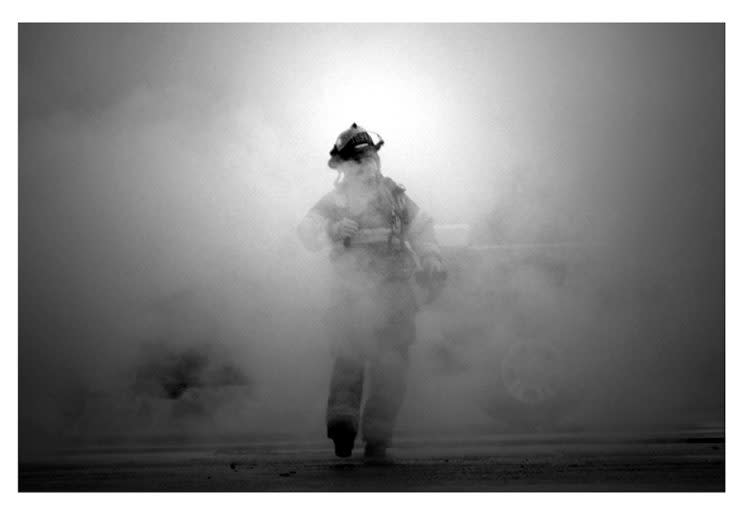High Melanoma Risk Makes Being a Firefighter Even More Dangerous Than You Thought

It’s a no-brainer that having to run into burning buildings as part of your job makes it a risky one. But being a firefighter comes with more dangers than you might have realized — including an elevated risk of the deadly skin cancer melanoma.
The issue is in the spotlight this week following a ruling by the Washington Supreme Court in favor of two firefighters. The men, who are battling melanoma, found that their insurance benefits were rescinded by the city and state Department of Labor, and so they brought the case to court.
“I thought [the verdict] was great,” plaintiff Delmis Spivey told the Bellevue Reporter. “The fact that skin cancer is a presumptive disease for firefighters, there’s kind of this promise made to us. … When it was denied, it was a hard deal. Cancer’s a scary thing.”
The case dealt with a 2002 amendment to state law that makes melanoma an occupational disease for firefighters. Despite that amendment, the city of Bellevue and Department of Labor had contested the allocation of industrial insurance benefits to firefighters Spivey and Wilfred A. Larson because they could not definitively prove that their cancer was caused by their work for the Bellevue Fire Department.
Still, definitive or not, a medical legal consultant had testified that their work as firefighters — and exposure to smoke, fumes, soot, and toxic substances — was likely to have caused the melanoma. This is a belief based on a growing number of scientific findings, and one that’s been changing insurance benefits for those who fight fires for a living in various states across the nation.
As a group, firefighters have higher rates of cancer — up to twice as high in some cases — than most people in the United States. In the case of malignant melanoma, firefighters’ risk is 1.31 times higher than non-firefighters’, and it’s 1.39 times higher for other skin cancers, according to a report issued by the Firefighter Cancer Support Network. Other high-risk cancers for firefighters include testicular cancer (2.02 times greater risk), multiple myeloma (1.53 times greater risk), Non-Hodgkin’s lymphoma (1.51 times greater risk), and brain cancer (1.31 times greater risk).
Through extensive research, the Centers for Disease Control and Prevention found that firefighters had a greater number of cancer diagnoses and cancer-related deaths, but that they were mostly digestive, oral, respiratory, and urinary cancers — as well as malignant mesothelioma, a rare type of cancer caused by exposure to asbestos.
An Australian study, meanwhile, found that rates of melanomas in career male firefighters were 45 percent higher than in the general population.
Toxins are certainly at play — and inhaled — during fire hazards. But why the higher skin cancer risk? Because UV exposure isn’t the only risk factor, say the various studies.
“There’s a lot of research going on now that shows the chemicals being released in a fire are not just something we get through breathing them in; we also get them through skin absorption,” Maine firefighter Mike Nixon, who had melanoma, told the Bangor Daily News in 2014. “We don’t have chemical protective clothing when we go in to fight a fire, we have turnout gear — that’s a structural firefighting ensemble, which gives you very limited protection against vapor-released gases.”
Regarding the insurance protections, such as those just upheld in Washington, about three dozen states have laws that presume that certain cancers are related to firefighters’ jobs and their exposure to toxins, which makes it easier for them to receive disability benefits.
“We expect these men and women to run into burning buildings and save people’s lives, and they do a marvelous job,” Ohio Republican state Sen. Tom Patton told the Pew Charitable Trusts Stateline blog in 2015, when he sponsored what was known as a firefighter presumption bill — a bill signed into law earlier this year. “They should have the presumption that their illness was caused by the fires they were fighting.”
Related: Young Women Know About Skin Cancer Risks — But They’re Still Using Tanning Beds
Related: 98% of Millennial Women Know Skin Cancer Is Deadly. So Why Are They Still Tanning?
Let’s keep in touch! Follow Yahoo Beauty on Facebook, Twitter, Instagram, and Pinterest.


